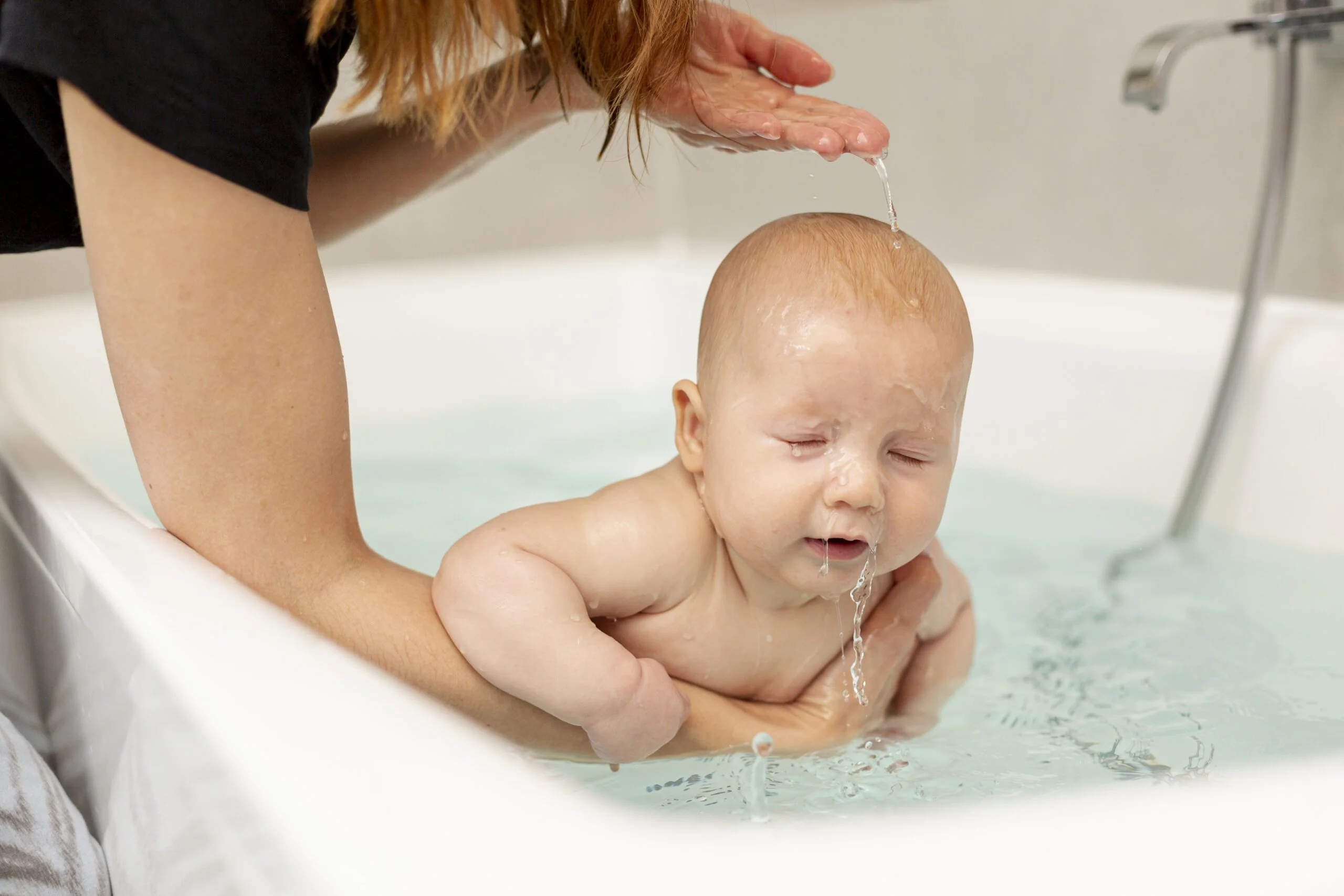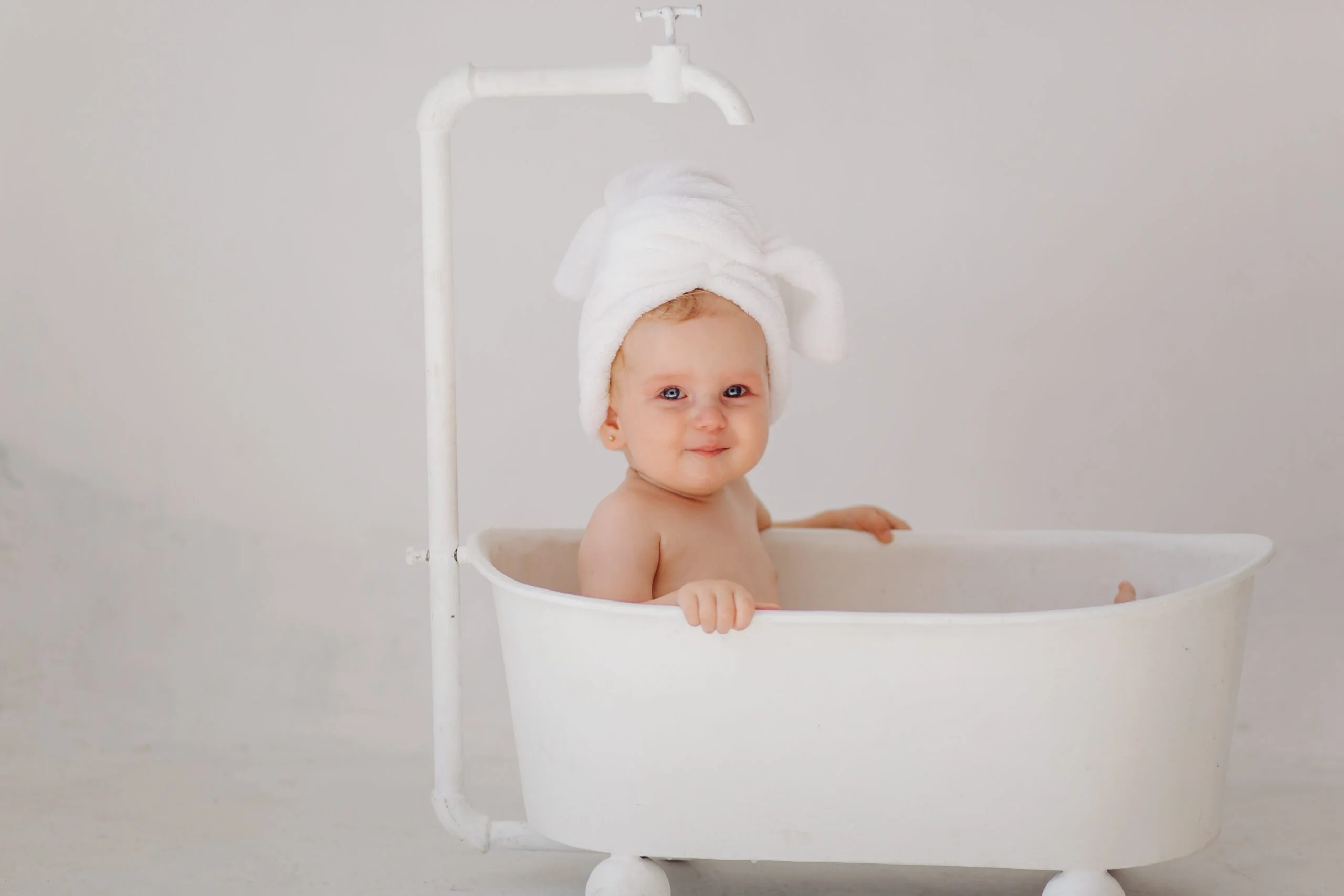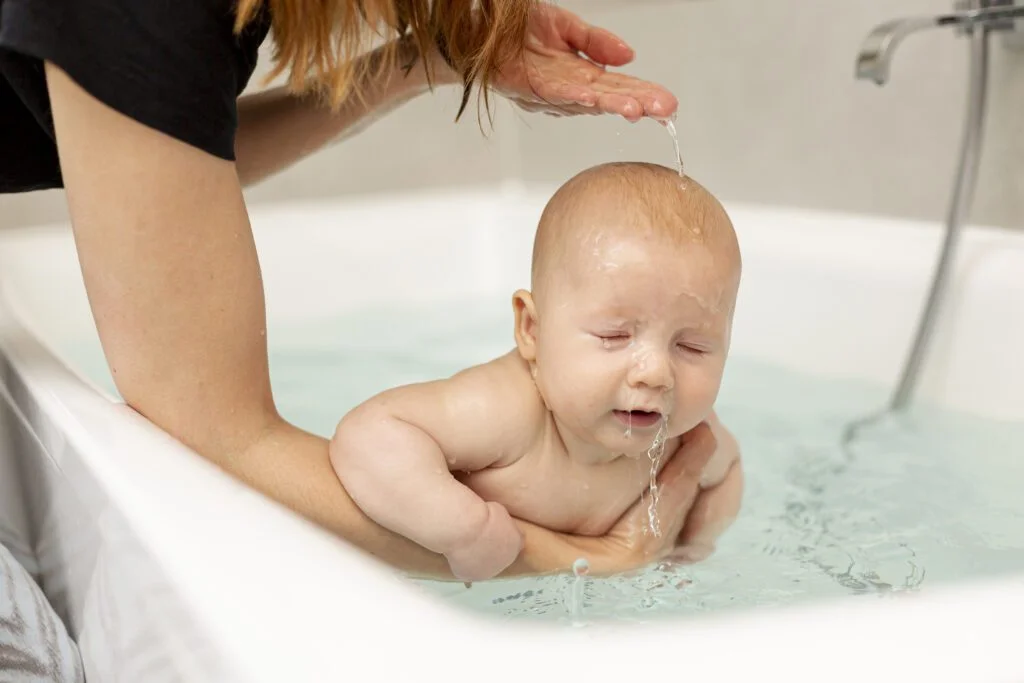Introduction
Bathing your baby is an important part of their hygiene routine, but the question is how often should you do it? The frequency of baths for babies can vary depending on their age, skin type, and daily activities. In this comprehensive guide, we’ll discuss the factors to consider when determining how often to bathe your baby and provide tips for a safe and enjoyable bath time experience

Factors to Consider for Best Baby Bath Time
Age: Newborns do not need to be bathed every day. Bathing them too frequently can strip their delicate skin of natural oils and lead to dryness or irritation. As your baby grows older and becomes more active, you may need to bathe them more often to keep them clean.
Skin Type: Babies with dry or sensitive skin may benefit from less frequent baths to avoid further drying out their skin. On the other hand, babies with oily skin or who are prone to sweating may need more frequent baths to prevent skin issues.
Daily Activities: If your baby is crawling or exploring outdoors, it may get dirtier and require more frequent baths. However, if your baby is mostly indoors and not getting dirty, they may not need to be bathed as often.

Newborn Babies
Less is more: Contrary to popular belief, newborns don’t need daily baths. In fact, bathing them too often can dry out their sensitive skin.
Focus on targeted cleaning: During the first few weeks, you can focus on cleaning areas that get dirty more frequently, like the face, neck, and diaper area. Use a warm washcloth and gentle, fragrance-free baby wipes.
Sponge baths are key: Wait at least 24 hours after birth for the first full bath. This allows the umbilical cord stump to dry and fall off naturally. Until then, sponge baths are your best friend.
Frequency: Aim for 2-3 baths per week for newborns. This keeps them clean without disrupting their natural skin barrier.

Older Babies
As they grow: As your baby becomes more active and mobile, they may need more frequent baths.
Consider the mess: If your baby gets messy with food, playtime, or diaper blowouts, an extra bath might be needed.
Focus on hygiene: Pay close attention to areas like the face, neck, hands, and diaper area, especially after meals and diaper changes.
Frequency: Once your baby is around 6 months old, you can consider daily baths if needed. However, 2-3 times a week is still perfectly acceptable.
General Guidelines
Newborns (0-3 months): 2-3 times a week is sufficient. Focus on cleaning the diaper area, face, and hands regularly.
3-6 months: You can increase the frequency to 3-4 times a week as your baby becomes more active.
6-12 months: You can bathe your baby 3-4 times a week or as needed based on their activities.
After 12 months: You can bathe your baby as often as needed but aim for 3-4 times a week unless they get particularly dirty.
Additional Tips
Listen to your baby: Ultimately, your baby’s individual needs and preferences should guide you. If they seem uncomfortable or fussy after a bath, it might be a sign they don’t need one that day.
Keep it short and sweet: Aim for short bath times, around 5-10 minutes. This helps prevent their skin from drying out.
Use lukewarm water: Avoid hot water, as it can easily burn your baby’s delicate skin.
Gentle cleansers: opt for fragrance-free, tear-free baby soaps and shampoos.
Moisturize: After bath time, pat your baby dry and apply a gentle, fragrance-free moisturizer to help keep their skin hydrated.
Final Thoughts
Safety first: Always prioritize your baby’s safety and comfort during bath time. Never leave them unattended in the tub, even for one moment.
No need to stress: Don’t get caught up in a rigid bath schedule. Adapt to your baby’s needs and adjust frequency as needed.
Enjoy the moment: Bath time can be a wonderful bonding experience. Sing songs, talk to your baby, and make it a fun and relaxing time for both of you.
More to Read
- The best 6 baby bathtubs in 2024
- How to bathe a newborn baby in 13 steps: The comprehensive guide
- Baby bath Ideal temperature: A Guide to Baby Bath Water
- Choosing the right baby bath products in 2 steps: The comprehensive guide
FAQ
What’s the best time of day to bathe my baby? Many parents find that bathing their baby in the evening helps to establish a calming bedtime routine. Nevertheless, you’re free to select any time of day that aligns with both your and your baby’s routine.
How long should I bathe my baby for? A quick bath of 5-10 minutes is usually sufficient for a baby. Prolonged baths may lead to the drying out of your baby’s skin.
Should I bathe my baby before or after feeding? It’s generally recommended to bathe your baby before feeding to avoid any discomfort from a full stomach.
What water temperature is safe for my baby’s bath? Aim for a comfortable temperature between 90°F and 100°F (32°C to 38°C). Remember to check the water temperature using your elbow or the inside of your wrist to ensure it’s not too hot.
Is it necessary to use a special baby bathtub? While a baby bathtub can make bath time easier and safer, you can also use a clean sink or a regular bathtub with proper precautions.
Should I add anything to my baby’s bathwater? Plain water is usually sufficient for newborns. For older babies, you can add a mild baby cleanser or soap specifically formulated for infants.
What frequency is appropriate for washing my baby’s hair? For newborns, washing your baby’s hair 2-3 times a week is usually enough. As your baby grows, you can increase the frequency if needed.
What should I do if my baby doesn’t like baths? Some babies may not enjoy bath time at first. Try making the experience more enjoyable with gentle toys, soothing music, or singing. Gradually, your baby may grow to love bath time.
How do I keep my baby safe during bath time? Always supervise your baby closely during bath time and never leave them unattended, not even for a moment. Keep all bath supplies within reach and ensure the water temperature is safe.
Can bath time help with my baby’s sleep? Many parents find that a warm bath followed by a gentle massage can help calm babies and prepare them for sleep. However, individual results may vary.



